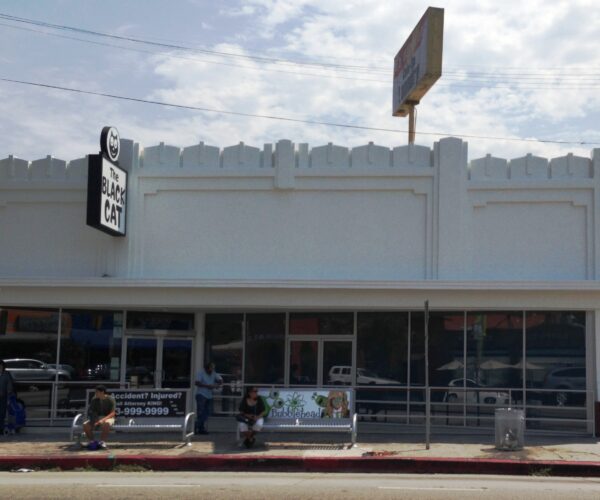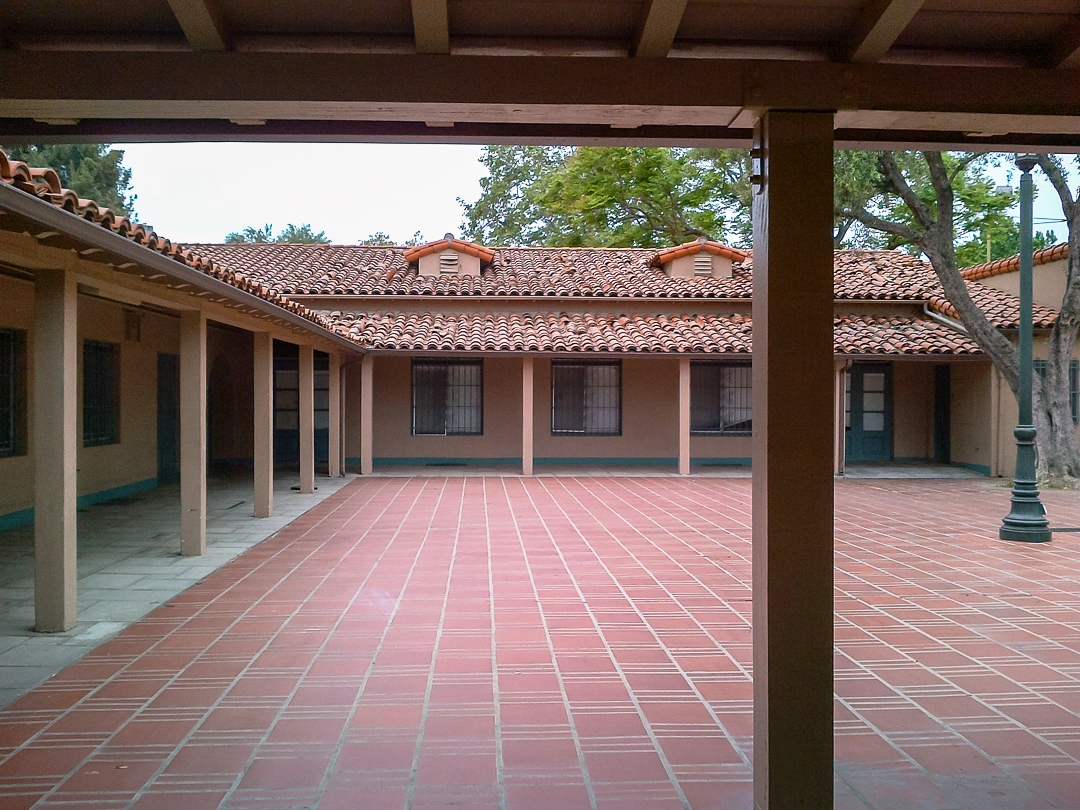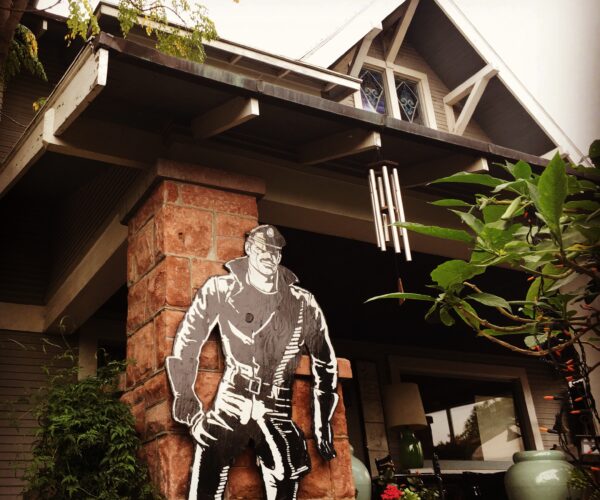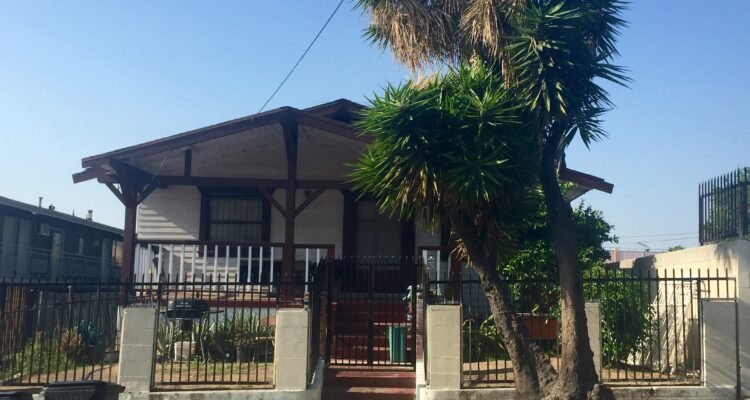
Place
Morris Kight Residence
This modest Craftsman home in the Westlake neighborhood was a hub of social activity in the twentieth century and helped form L.A.'s LGBTQ+ civil rights legacy.
Active
Three years after it was nominated as a landmark, LGBTQ+ activist Morris Kight’s former residence was declared a Historic-Cultural Monument (HCM) in August 2023.
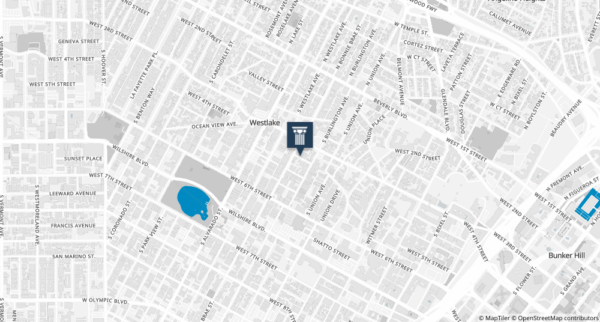
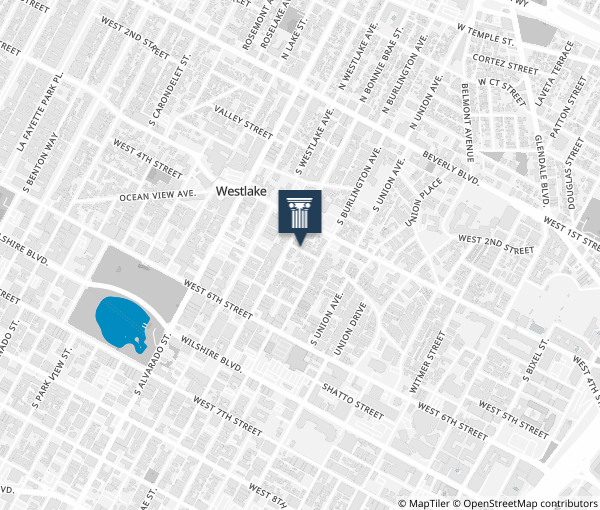
Place Details
Address
Get directions
Property Type
Government Officials
Attributes
Community
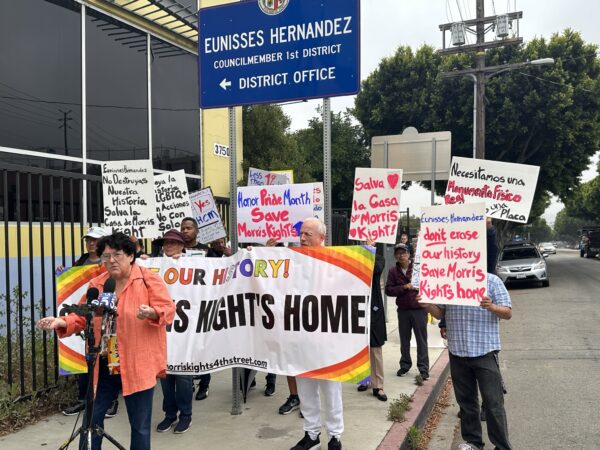
June 2023 protest in front of Councilmember Hernandez's office | Adrian Scott Fine/L.A. Conservancy
Overview
The 4th Street Morris Kight Residence tells the story of trailblazing LGBTQ+ civil rights activist and the network of organizers who fought for LGBTQ+ health, freedom, and joy. In the late 1960s and early 1970s, Kight’s home was where activists founded the Gay Community Services Center (now the LGBT Center) and planned the world’s first Pride Parade.
Nominated as a Historic-Cultural Monument in 2020, the house was designated in August 2023 thanks to the work of LBGTQ+ advocates and the office of Councilmember Eunisses Hernandez.
About This Place
About This Place
Why this Morris Kight Residence matters:
Morris Kight (1919-2003) is considered one of the founding fathers of the American LGBTQ civil rights movement. His Los Angeles residence, a modest Craftsman home in the Westlake neighborhood and a hub of LGBTQ social activity in the twentieth century helped form the backdrop to his work as an activist and gay rights pioneer.
Born and raised in Texas, Kight moved to Los Angeles in 1958, where he would go on to co-found several prominent LGBTQ rights organizations.
The most notable of these is the Committee for Homosexual Freedom, which became the Gay Liberation Front (GLF) in 1969. At the time of the GLF’s founding in Los Angeles, two other chapters of the GLF were flourishing in Berkeley and New York.
Kight also spearheaded the creation of the Gay Community Services Center, which today is known as the Los Angeles LGBT Center.
In 1970, Kight co-founded the Christopher Street West gay pride parade in Los Angeles, the first gay pride parade and festival in the world and still a model for pride events across the globe.
Kight spent his formative years in Comanche County, Texas and graduated from Texas Christian University in 1941. He began his long career as a civil rights activist in the 1940s when he became involved in organizing the Oil, Chemical, and Atomic Workers International Union.
After graduation, Kight moved to New Mexico, where he married and had two daughters. Throughout his time as a gay rights activist, he rarely discussed his marriage and family life because he believed that it could compromise his credibility within the LGBTQ movement.
Also while in New Mexico, Kight took up acting and often performed in summer theater productions. During this time, he was exposed to literature produced by homophile organizations such as the Mattachine Society.
Though his work focused on Los Angeles, Morris Kight’s contributions to the LGBTQ community have spanned the globe.
The Gay Community Services Center (now the Los Angeles Gay and Lesbian Center) has grown into the world’s largest provider of LGBTQ programs and services.
Since Christopher Street West’s founding march in 1970 in Los Angeles, gay pride parades and festivals are not only celebrated across the U.S. during the month of June, but also across six continents.
Kight remained an influential LGBTQ rights activist late in life. In 1987, he served as a leader of the Second National March on Washington for Gay Rights. The following year, he received a lifetime achievement award from the West Hollywood City Council.
The AIDS Heathcare Foundation submitted the Historic-Cultural Monument (HCM) for the Morris Kight Residence.
Our Position
We strongly encouraged Councilmember Hernandez to reconsider a proposed amendment to for a “site of” designation which would allow the Kight Residence to be demolished.
We applaud Councilmember Hernandez for ultimately supporting the full designation of the house, and working with the owner and stakeholders on a plan to rehabilitate the home and add new affordable housing on the site.
We look forward to continuing to be part of the solution for the house to tell its story and contribute to the MacArthur Park/Westlake community
